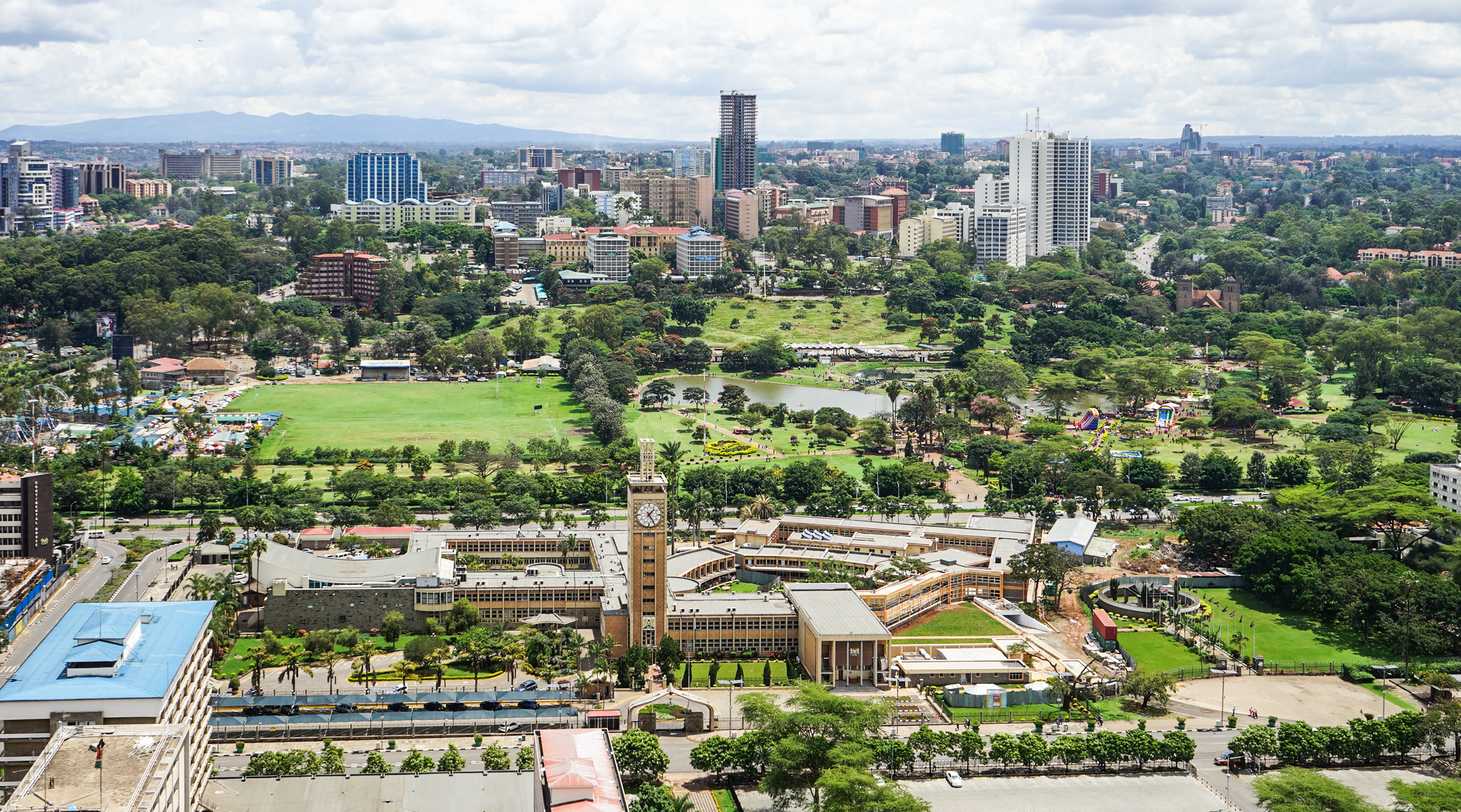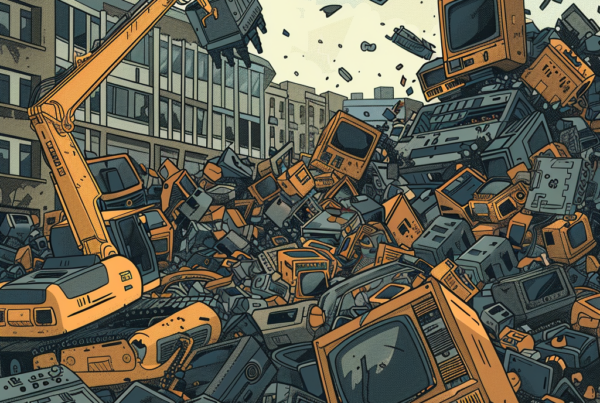The trillion-dollar artificial intelligence revolution isn’t built on sophisticated algorithms and cutting-edge technology.
It’s built on tens of thousands of workers’ suffering.
This isn’t a “bad boss” situation at one or two companies. This isn’t a glitch in the system.
It is the system.
Table of Contents
- When Trauma Starts Sounding Like Opportunity
- Why Workers Can’t Simply Walk Away
- Equitable Digital Inclusion is a Necessary Component of Preventing Digital Exploitation
When Trauma Starts Sounding Like Opportunity
Behind some of the most impactful, recent AI breakthroughs and the increasing sanitization of our social media feed lies a disturbing pattern of exploitation that targets the world’s most vulnerable populations. In cities like Nairobi, Manila, and Casablanca, in Syrian refugee communities in Lebanon, and among immigrant populations in Germany, an invisible workforce endures daily psychological horror to keep our digital spaces “clean.”
To illustrate our point, we will borrow heavily from an article published by Noema that focused on the conditions of three workers: Kings, Ranta, and Abrha, all who worked as data annotators and content moderators in Nairobi, Kenya for companies including Sama and Meta, which used their labor to review and moderate content and data that was fed both into social media algorithms and into datasets that were used to train large language models like ChatGPT.
To put it bluntly, the content these workers must review or annotate is horrific – violence, hate speech, child sexual abuse, xenophobia, racism, and domestic violence. Kings, who grew up in Kibera, one of the world’s largest slums, shares experiences too graphic for most to even contemplate: “I saw videos of child abuse.” The psychological toll is devastating. As Kings puts it: “It goes beyond what makes people human. It’s like being forced to drink poison every day, knowing it’s killing you, but you can’t stop because it’s your job.”
The reality of content moderation work – the actual physical action of the work – is also far bleaker than tech companies would have us believe. Workers at Ranta’s job are given just one hour of break time during their entire shift for all basic needs – eating, stretching, using the bathroom. Under constant surveillance through computer tracking, cameras, and even facial expression monitoring (to make sure they weren’t too emotional (see: not objective) in response to what they were seeing), they can’t even keep their phones nearby for comfort, forced instead to store them in lockers. Non-disclosure agreements silence workers from speaking out about their conditions, while job insecurity keeps them trapped in their roles.
Even basic protections aren’t guaranteed. Sama, for instance, stopped making health insurance contributions for Ranta while continuing to deduct payments from her paycheck. The combination of severe trauma, constant surveillance, and the threat of losing their jobs creates a perfect storm of exploitation that workers have little power to resist.
Some companies that rely on organizations like Sama, such as Meta, claim to provide “24/7 on-site support with trained practitioners” and “technical solutions to limit exposure to graphic material” for its content moderators and data annotators. But the workers’ testimonies tell a different story. As Abrha describes it: “Imagine being expected to watch a video of someone being killed, and then immediately move on to the next post. There’s no time to breathe, let alone process what we’ve seen.”
In Abrha’s case, this meant having to watch videos from the Tigray war, the deadliest modern day conflict,; the war he himself had just fled. Sometimes even having to watch videos of bombings in his own hometown.
So who can really be surprised to learn that the impacts of this work follow workers home, haunting their lives with severe psychological symptoms including nightmares, flashbacks, anxiety, and hypervigilance?
At just 32, Kings struggles with intimacy due to intrusive images from work.
Ranta speaks of losing all faith in humanity.
Abrha turned to chain smoking just to cope with the daily trauma.
One worker even fled to the countryside, their paranoia about potential violence making city life unbearable.
Who can blame them?
Why Workers Can’t Simply Walk Away
The exploitation of content moderators and data annotators is a predictable consequence of the massive digital divide that continues to grip the Global South.
For our purposes and to focus our discussion, we will focus on the continent where Ranta, Kings, and Abrha, reside: Africa. While the internet has grown exponentially in Africa, from 4.5 million users in 2000 to 526 million in 2019, this impressive growth masks a stark reality: still only 39.3% of Africans have internet access, compared to 74% in G20 countries.
This digital isolation is compounded by a devastating education gap. African students average just 6 years of schooling compared to 10.6 years in G20 countries. The continent’s entire higher education system includes only 25 universities ranked in the global top 500 for STEM fields, with just eight specializing in engineering and seven in natural sciences. Only South Africa, Egypt, and Uganda are even represented in these rankings. While some countries like Algeria, Mauritius, and South Africa maintain secondary school enrollment rates above 80%, others like Tanzania, Ethiopia, and Madagascar struggle to reach 40%. The gap becomes a chasm at the tertiary level, where African enrollment sits at 15.3% compared to 65% in G20 nations.
The economic consequences of this divide are profound and self-reinforcing. Over the past decade, low-skill digital jobs have plummeted from 47.6% to 31.6% of available positions, while higher-skill opportunities have grown. Yet 95% of the African population remains trapped at basic or intermediate digital skill levels, with stagnant growth in the proportion of the population that possesses highly specialized digital skills. This creates a perfect storm where workers must migrate to connected urban centers for any chance at digital employment, even if that means accepting exploitative conditions.
The financial barriers to self-employment or entrepreneurship are equally daunting. Only 36% of Africans have access to the infrastructure or personal tooling to make digital payments, compared to 75% in G20 nations, and just 45% have basic bank accounts versus 82% in G20 countries. These numbers reflect a deeper pattern of structural inequality, where every form of capital – financial, human, social, physical, and informational – is systematically denied to workers in the Global South.
This systematic disadvantage is further entrenched by what can only be described as coercive inclusion in the digital economy. Workers face direct pressure to accept disadvantageous terms, often tied to access to essential services. The lack of alternatives – driven by poverty and marginalization from formal systems – creates a form of forced participation. Meanwhile, information asymmetries ensure workers often don’t fully understand the risks and adverse consequences of their positions until they’re already trapped in them.
The pattern is clear: platforms extract value from the Global South – through user data, content generation, and local knowledge – while shifting all risks and psychological costs onto vulnerable populations. Across Africa, local hotels and travel agencies lose value to foreign platforms like TripAdvisor that accumulate capital outside the continent. Kenyan farmers are pressured into disadvantageous data sharing agreements, only to find themselves blacklisted from credit over small defaults. Even traditional knowledge is stripped for profit – consider the Shuar indigenous community in Ecuador, whose centuries of medicinal plant knowledge was digitally captured, transferred to U.S. government systems, and enclosed in private pharmaceutical databases without compensation.
This value extraction is horrifyingly protected by tax frameworks that systematically favor large tech companies while undermining local economies’ ability to invest in their own digital infrastructure. The OECD’s two-pillar framework sets revenue thresholds so high ($20 billion globally) that most exploitative platforms slip through the cracks. While the African Tax Administration Forum recommends a 20% minimum tax rate and 35% profit allocation to market jurisdictions, the global standard remains at just 15%. Only 10 African nations even participate in this framework, and they face enormous implementation costs – from technical training and infrastructure development to building monitoring systems and enforcement mechanisms.
Meanwhile, global tech platforms employ sophisticated tax avoidance strategies through headquarters location optimization, transfer pricing, and intellectual property arrangements. Local firms must comply fully with tax obligations while global platforms minimize their contributions, creating an ever-more uneven playing field. The result is devastating for small economies: revenue loss from non-resident companies, reduced domestic tax collection, and shrinking public service funding that result in increased public desperation.
Workers’ attempts to resist this exploitation through collective action also face systematic suppression. The African Content Moderators Union was formed to unite workers across different African countries, but companies quickly moved to crush it. When workers in Kenya tried to organize their own union, they were told to join the postal and telecommunication union instead – a transparent attempt to dilute their collective power. The dismissal of Richard Mathenge, the co-founder of Techworker Community Africa, after engaging in union activities sent a clear message about the costs of resistance. Without effective collective bargaining power or regulatory protection, workers like Richard find themselves locked into deepening patterns of dependency, unable to challenge the platforms that profit from their trauma.
And, with 98% of African economies falling below the G20 average for digital competence, workers across the continent face an impossible choice: remain in digitally disconnected communities with dwindling economic opportunities, or migrate to urban centers where they must accept whatever digital labor is available, no matter how traumatic or exploitative. The fact that companies like Sama actively recruit workers from across the Global South exceeds opportunism and is evidently calculated exploitation of a population that has been systematically denied the tools and infrastructure needed to participate in the digital economy on their own terms.
Equitable Digital Inclusion is a Necessary Component of Preventing Digital Exploitation
The evidence for prioritizing global digital inclusion is compelling, and it points toward real hope for change. When internet access reaches communities, lives transform: Nigeria saw a 3% increase in labor force participation and a 9% rise in household consumption, with poverty rates declining 7% after just three years of mobile internet coverage. In Tanzania, the impact was even more dramatic – an 8% jump in labor force participation, 4% increases in both wage employment and nonfarm self-employment, and a 10% boost in household consumption. Most importantly, these gains often reach those who need them most: female-headed households, rural communities, and less educated workers see the largest improvements.
However, we must acknowledge a difficult truth: digital inclusion alone isn’t enough. Without proper protections and oversight, expanding internet access risks exposing more workers to exploitation. The content moderation industry shows us what happens when digital opportunities come without safeguards – workers like Kings, Ranta, and Abrha face severe psychological trauma while platforms profit from their pain. These companies market themselves as engines of economic opportunity while avoiding accountability for worker wellbeing.
The numbers clearly show digital inclusion’s potential to create economic opportunity. But we can’t ignore the human element – every person deserves to participate in the digital economy with dignity and safety. This is why organizations like Human-I-T work not just to provide technology and internet access, but to empower people with the skills and knowledge to use these tools for their own advancement.
As we continue our mission to bridge the digital divide, we must also advocate for responsible technology practices. This means supporting policies that protect workers, ensure platforms contribute fairly to the communities they profit from, and guarantee that digital inclusion truly serves people, not just corporate interests. The stories of Kings, Ranta, and Abrha remind us what’s at stake – real lives, real futures, real human potential.
The digital revolution promises unprecedented opportunities for human advancement. But fulfilling that promise requires both expanding access and ensuring that access leads to genuine empowerment. Every refurbished device, every internet connection, every digital skills training session is a step toward that goal. Together, we can build a future where digital inclusion means not just being connected, but being truly empowered to thrive in the digital age.
So, the question remaining for us isn’t whether we’ll create a digital underclass – we’re already doing it.
The question is: do we have the thoughtfulness and willpower to stop it from expanding?
We at Human-I-T are certainly going to do our part, and we hope you’ll support us in that effort.
Join us in making digital inclusion work for everyone.
Support organizations like ours so that, as more people come online, they do so with the protections and assistance they need to truly unlock their potential online – on their terms.
Dive Deeper into The Sources:
- https://www.amnesty.org/en/wp-content/uploads/2024/03/POL4071082023ENGLISH.pdf
- https://www.researchgate.net/publication/384363706_Digital_Inclusion_and_Evolution_of_African_Labor_Laws_Impacts_on_Employee_and_Organizational_Management
- https://www.ajol.info/index.php/epr/article/view/252725
- https://allafrica.com/stories/202406280042.html
- https://openknowledge.worldbank.org/bitstream/handle/10986/39491/9781464817373.pdf
- https://documents1.worldbank.org/curated/en/099135507312434566/pdf/IDU1a0df719e1a15214a9f19be4123f35220101c.pdf
- https://www.brookings.edu/articles/digitalization-and-digital-skills-gaps-in-africa-an-empirical-profile/






